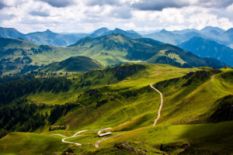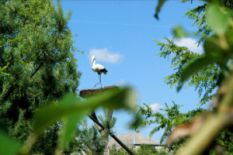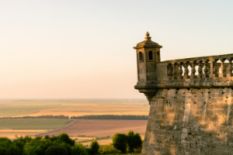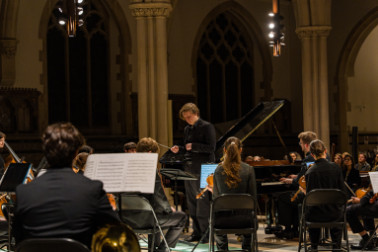Danube Biosphere Reserve
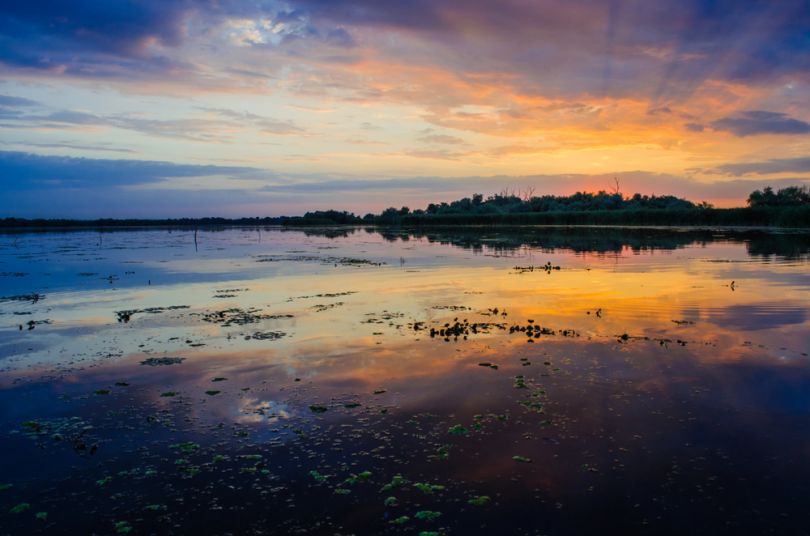 One of the many wonders of Odesa oblast is Danube biosphere reserve, established to preserve the unique nature of the Danube delta, where the powerful 2850-km long river almost reaches the Black Sea. Nowadays, the reserve belongs to the list of UNESCO certified locations in Ukraine. Its history, however, began in 1967, when a natural monument of national significance was founded in this area. It took 30 years to establish the reserve as we know it now.
One of the many wonders of Odesa oblast is Danube biosphere reserve, established to preserve the unique nature of the Danube delta, where the powerful 2850-km long river almost reaches the Black Sea. Nowadays, the reserve belongs to the list of UNESCO certified locations in Ukraine. Its history, however, began in 1967, when a natural monument of national significance was founded in this area. It took 30 years to establish the reserve as we know it now.
The whole territory of the reserve occupies about 50000 hectares - in fact, it is the largest and the least damaged complex of wetlands in the whole Europe. The Danube reserve is home for numerous species of flora and fauna listed in Ukraine's endangered list. There are three tourist tracks on the site: 'Zero Kilometer', 'Way to Birds' and 'Forest Lake'. 'Zero Kilometer' is one of the most popular tours to Danube delta reserve thanks to its astonishing views where the river flows into the Black Sea.
Another thing that lures in tourists here is birdwatching, namely pelicans that hunt in the fields full of lilies. Those who visit Danube biosphere reserve in Ukraine might also be interested in visiting the Vilkovo town. The authentic historical spot boasts 250 years of history and carefully preserved local culture. The dwellers of Vilkovo have their own dialect, customs and traditions you won’t see in other parts of the country.
Gorgany Natural Reserve
 The unique nature of Gorgany, a mountain range of the Outer Eastern Carpathians in Western Ukraine, was recognized by the government officials way back in the 1940s. Unfortunately, WWII prevented organizing the dutiful protection of the area. The Gorgany region officially fell under the country's protection in 1996. The 50000-hectares reserve occupies the most desolate and hardly accessible part of the mountain range - Dovbush Gorgany.
The unique nature of Gorgany, a mountain range of the Outer Eastern Carpathians in Western Ukraine, was recognized by the government officials way back in the 1940s. Unfortunately, WWII prevented organizing the dutiful protection of the area. The Gorgany region officially fell under the country's protection in 1996. The 50000-hectares reserve occupies the most desolate and hardly accessible part of the mountain range - Dovbush Gorgany.
The rocky mountains boast wonderful slopes and summits like Dovbushanka (1754 m) and Vedmezhyk (1736 m). Moreover, the reserve is home for more than 30 mountain rivers that tribute from the Bystrytsya Nadvirnyanska River. Gorgany Natural Reserve is one of the most diverse and untouched nature spots in the Ukrainian Carpathians. The intricate fusion of climate, landscape and a low number of inhabitants influenced the flora, which boasts about 30 species from Ukraine's endangered list.
As for the fauna, the reserve is full of owls, woodpeckers, wild cats, spotted salamanders as well as more common squirrels, rabbits and deer. The lucky ones might meet a lone wolf as well. Despite being quite desolate, Gorgany has three tourist tracks: 'Above the Lake', 'Polinskyi Slope' and 'Giurgiu'. The 5-kilometer Polinskyi Slope is by far one of the most popular among them.
Roztochya Biosphere Reserve
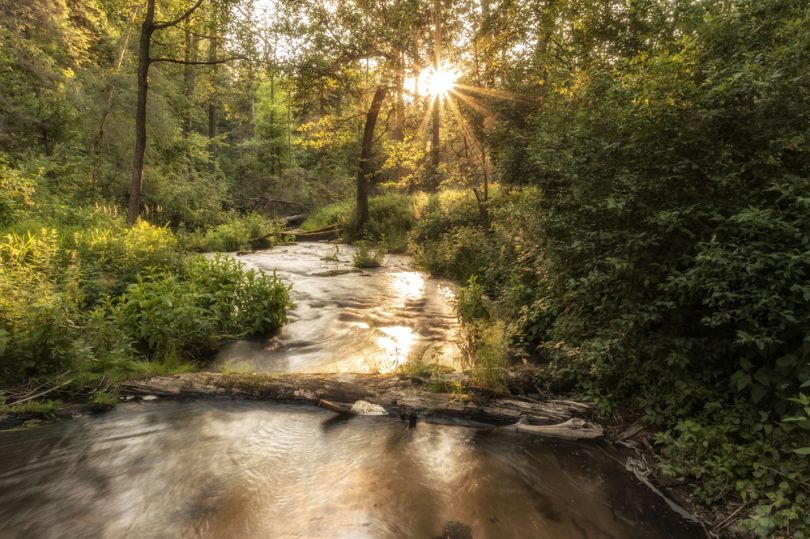 Roztochya, also called the Roztochya Biosphere Reserve, is one of the hidden natural reserves in Ukraine. Located 20 kilometers from Lviv, the spot is usually skipped in favor of the more touristic locations like the Zhovkva Castle. However, Roztochya and its neighboring Yavorivskyi National Park are worth visiting in Ukraine as well. The natural reserve was first created here in 1984, and in 2011 Roztochya was included in the list of UNESCO Biosphere Reserves in Ukraine.
Roztochya, also called the Roztochya Biosphere Reserve, is one of the hidden natural reserves in Ukraine. Located 20 kilometers from Lviv, the spot is usually skipped in favor of the more touristic locations like the Zhovkva Castle. However, Roztochya and its neighboring Yavorivskyi National Park are worth visiting in Ukraine as well. The natural reserve was first created here in 1984, and in 2011 Roztochya was included in the list of UNESCO Biosphere Reserves in Ukraine.
The 30000-hectare area located in between Ukraine and Poland grasps three different natural regions: the Carpathians, Polissia and Podillia, which makes it unique among other parks and reserves in the country. Another notable feature of the place is the abundance of rivers that flow into the Dniester River. The fact is even reflected in the reserve's name, as 'Roztochya' means the place where rivers flow into different directions. The reserve's territory is mostly occupied by forests full of rare trees and animals. Visitors have a chance to meet river otter, ermine, swallowtail, badgers and other fauna otherwise rare in Ukraine.
The rest of the reserve is occupied by meadows and marshes that form a tract called Zalyvky. The official tourist spots in the Roztochya Biosphere Reserve include 'The Queen Mountain' track, the Natural Museum and the National Forestry University Botanical Garden.
Medobory Natural Reserve
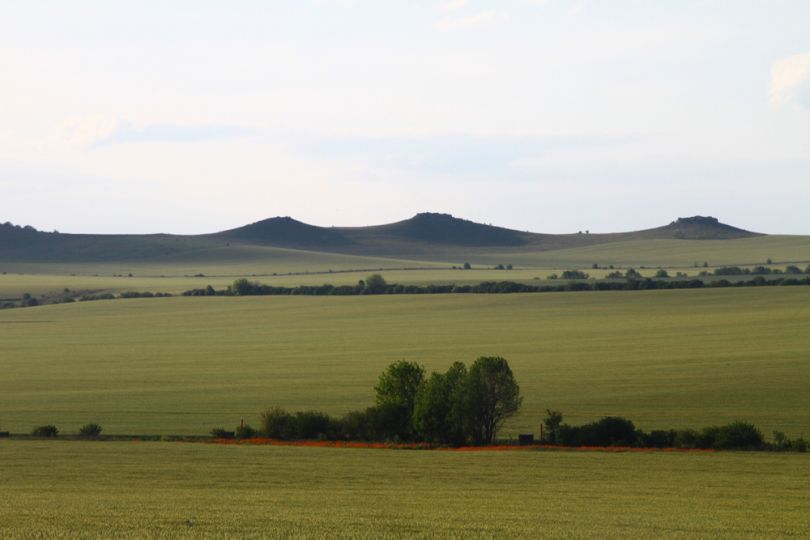 Medobory Natural Reserve often pops up when tourists seek places to visit the Podilski Tovtry Natural Park in Chemerivstsi. The reason behind is that Medobory was created for the same reason - preserve and popularize the unique natural beauty. Tovtry is a local name for a chain of lime hills that extends for 200 km from the Lviv Oblast to Moldova. The 50-60-meter hills remind of the large waves covered with bushy forests. The real water is present in the tovtry as well — numerous lakes of different shapes and sizes surround the bottom of the hills.
Medobory Natural Reserve often pops up when tourists seek places to visit the Podilski Tovtry Natural Park in Chemerivstsi. The reason behind is that Medobory was created for the same reason - preserve and popularize the unique natural beauty. Tovtry is a local name for a chain of lime hills that extends for 200 km from the Lviv Oblast to Moldova. The 50-60-meter hills remind of the large waves covered with bushy forests. The real water is present in the tovtry as well — numerous lakes of different shapes and sizes surround the bottom of the hills.
Tovtry, located on the territory of the Medobory Natural Reserve, are the only of their kind in the whole world. Structurally similar geological areas can be found in the US or Great Britain, but they still differ in many aspects. The reserve is overflowing with fruity hawthorn, raspberry, briar and blackberry. Moreover, it became home for more than 350 kinds of animals, 85 of which are considered endangered in Ukraine.
Apart from the natural wonders, Medobory has historically and culturally significant areas. One of them is Franko Rocks named after the famous Ukrainian writer and poet Ivan Franko. He lived in the neighboring Vikno village in 1883-1884 and adored hiking in Medobory, visiting the rocks and the nearby lakes. Poetry collection 'Withered Leaves' by Franko was largely inspired by that natural area.
More ancient historical traces can be found here as well: for instance, three 10-13th century pagan sites called Bogyt, Govda and Zvenyhorod. Nowadays, Bogyt attracts tourists as it's most well-preserved among the three. Other tourist spots in Medobory Natural Reserve include Hostra Mountain and the Hermit's Forest.
Kalmius Nature Reserve
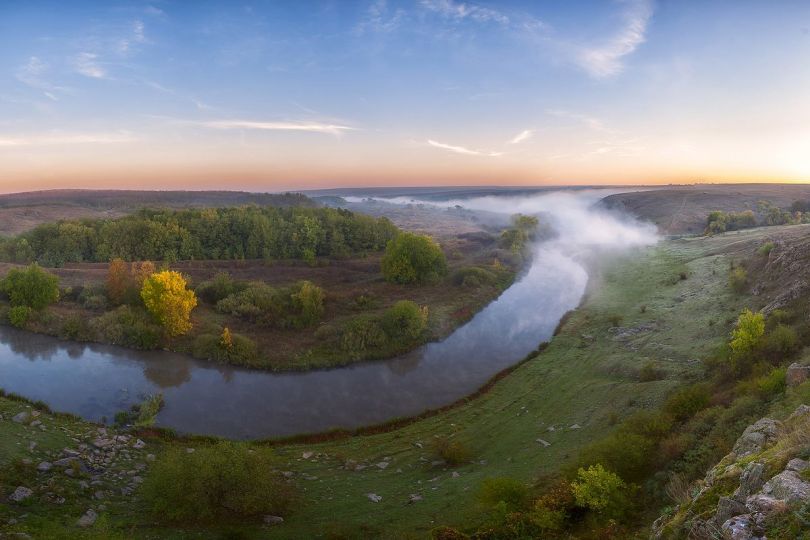 While the Carpathians undoubtedly gather the largest number of natural parks in Ukraine, the usually overlooked Donetsk Oblast has breathtaking spots as well. One of the unique spots of the region is Kalmius Nature Reserve founded in 2008. The reserve's name refers to its prime location - Kalmius River, which valley resembles a canyon. Geologists state that the granite found in the reserve is 560 million years old. Kalmius Reserve occupies a large part of the Azov Upland, while most of its 580-hectare territory is rocky steppe.
While the Carpathians undoubtedly gather the largest number of natural parks in Ukraine, the usually overlooked Donetsk Oblast has breathtaking spots as well. One of the unique spots of the region is Kalmius Nature Reserve founded in 2008. The reserve's name refers to its prime location - Kalmius River, which valley resembles a canyon. Geologists state that the granite found in the reserve is 560 million years old. Kalmius Reserve occupies a large part of the Azov Upland, while most of its 580-hectare territory is rocky steppe.
The flora of this place is rich with tulips, saffron, and sleep-grass. As for the fauna, the steppe is largely populated by cranes, herons, wild ducks, pheasants, weasels, and ferrets. Unfortunately, in 2015 Kalmius River became a part of the war zone in the ongoing Russian-Ukrainian war. We hope that the conflict won't touch the magnificent nature of the region.
Naturally, these are mere five of numerous popular biosphere reserves in Ukraine. Many of the reserves and natural parks are located out of the touristic areas like the Carpathians but are still worth visiting for tourists and locals in Ukraine.
Photo sources: shutterstock.com, Balkhovitin / wikimedia.org. All images belong to their rightful authors.
